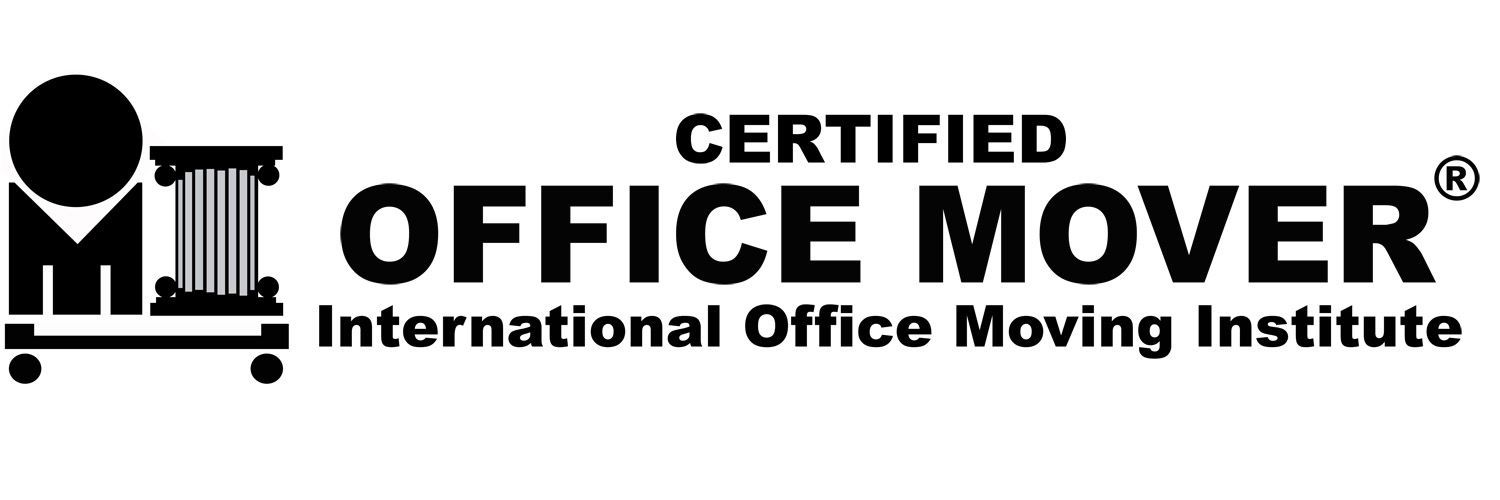Is Chicago, IL a Safe Place to Live?
Chicago, often referred to as "The Windy City," is a vibrant and diverse metropolis that has captured the hearts of many with its stunning architecture, renowned culinary scene, and rich cultural offerings. Known for its iconic skyline, deep-dish pizza, and bustling neighborhoods, Chicago offers a dynamic urban lifestyle that attracts people from all walks of life. But is Chicago a good place to live? Like any major city, it comes with both benefits and challenges.
While Chicago presents endless opportunities for entertainment, career advancement, and community engagement, it also has aspects that potential residents should carefully consider. Here you will find the pros and cons of living in Chicago to help you determine if it’s the right city for you.
What’s It Like to Live in Chicago, IL?
While tourists may be dazzled by Chicago’s famous attractions like the Magnificent Mile, Millennium Park, and the towering Willis Tower, for locals, these landmarks often blend into the background of daily life. Living in the Windy City is more than just the sights; it’s about the unique rhythm of each neighborhood and the city's seasonal shifts.
Your experience in Chicago largely depends on where you choose to live. With 77 official community areas, each neighborhood offers something unique, from Uptown’s laid-back vibe to Hyde Park’s historic charm and the bustling activity of The Loop. Summers are filled with festivals, fireworks, and beach days, while winters bring ice skating, zoo lights, and festive holiday events.
As spring warms the city, life returns to its streets, and in fall, colorful leaves line the sidewalks. For museum enthusiasts, Museum Campus is a must-visit, and Cubs fans always have a team to cheer for throughout baseball season. Chicago’s festival scene is seemingly endless, ensuring there’s always something to enjoy.
A Rich Arts and Cultural Landscape
For anyone passionate about the arts, Chicago is a goldmine of cultural experiences. The city boasts an array of world-renowned institutions that cater to diverse artistic tastes.
Chicago as a Cultural Hub
- A goldmine of cultural experiences for art enthusiasts.
- One of the most prestigious art museums in the world.
- Houses a vast collection ranging from ancient to contemporary art.
- Visitors often spend hours or days exploring its galleries.
The Chicago Theatre
- Iconic venue with a grand marquee.
- Hosts concerts, comedy shows, and live performances.
- Popular with both tourists and locals.
Art Fairs and Festivals
- Chicago’s calendar is filled with art fairs and cultural events.
Jazz Festivals
- The Chicago Jazz Festival and the Hyde Park Jazz Festival are annual events that attract international musicians and jazz fans.
Thrilling Sports and Entertainment Choices
When it comes to sports and entertainment, few cities can rival Chicago. For sports fans, it’s a dream come true. The city is home to some of the most storied sports teams in the country, each with a passionate fan base.
Sports Enthusiasm in Chicago
- Chicago Cubs: Cheering at Wrigley Field.
- Chicago White Sox: Rooting at Guaranteed Rate Field.
- Chicago Bulls: Supporting at the United Center.
- Chicago Blackhawks: Thrilling NHL games, especially for hockey fans.
Theater Scene
- Goodman Theatre: Known for delivering world-class theatrical productions.
- Steppenwolf Theatre Company: Offers a mix of classic and contemporary performances.
Diverse Entertainment Options
- Beyond sports, Chicago offers top-tier theatrical experiences, appealing to both theater aficionados and casual attendees.
Renowned Food Scene
Chicago’s food culture is legendary. From its iconic deep-dish pizza to its thriving gourmet scene, the city is a haven for foodies.
Chicago-Style Pizza
- Thick, buttery crust with layers of cheese and toppings.
- Famous rivalry between Lou Malnati’s and Giordano’s.
Diverse Culinary Landscape
- Beyond pizza, Chicago offers a wide variety of food options.
- Ranges from Michelin-starred fine dining to food truck delicacies.
Cultural Food Diversity
- Pilsen: Known for vibrant Mexican cuisine.
- Chinatown: Offers a blend of traditional and contemporary Asian fusion.
Global Cuisine Representation
- Chicago's neighborhoods feature dishes from around the world, including authentic tacos, sushi, and Middle Eastern fare.
Scenic Lakefront and Abundant Outdoor Spaces
One of the most striking features of Chicago is its breathtaking lakefront, which stretches for 18 miles along Lake Michigan.
Lakefront Escape
- Public beaches like North Avenue Beach and Oak Street Beach for relaxation, swimming, and water sports.
- Walking along the shoreline offers views of the lake and the iconic city skyline.
Grant Park
- Known as “Chicago’s front yard.”
- Hosts outdoor festivals and events, including Lollapalooza.
- Provides beautiful views of the city.
Millennium Park
- Famous for the "Cloud Gate" sculpture (also known as "The Bean").
- A popular spot for outdoor concerts, art installations, and green spaces.
Excellent Public Transportation System
Chicago’s public transportation system is among the best in the country, offering residents an efficient, affordable way to navigate the city. The CTA’s “L” trains, which operate across multiple lines, connect neighborhoods to downtown and other major points of interest, making it easy to get around without a car. Additionally, the city’s bus system supplements the trains, providing further connectivity to areas that may not be serviced by rail.
Alternative Transportation Options
- Divvy bike-sharing system for easy bike access.
- Water taxis for scenic transportation along the river.
Pedestrian-Friendly Neighborhoods
- Many attractions, shops, and restaurants are within walking distance.
Walkability and Public Transportation
- Convenient public transportation system.
- Walkability reduces the need for car ownership, making Chicago ideal for urban dwellers avoiding car expenses and hassles.
High Sales Taxes
Chicago, IL, is known for having some of the highest sales taxes in the United States. The combined sales tax rate in Chicago is typically around 10.25%, which includes state, county, city, and special district taxes. Here's a breakdown:
- State Sales Tax: The base rate in Illinois is 6.25%.
- County Sales Tax: Cook County, where Chicago is located, adds a 1.75% tax.
- City Sales Tax: The City of Chicago adds a 1.50% sales tax.
- Special District Taxes: The Regional Transportation Authority (RTA) adds another 1.0% tax.
This 10.50% rate applies to most goods and services purchased within the city. However, some items, such as groceries, medicine, and medical equipment, may be taxed at lower rates (around 1% for groceries).
Cost of Living
While Chicago offers many amenities, its cost of living is higher than in many other U.S. cities. Pricey Housing in Popular Neighborhoods
- Rent ranges from $1,500 to $2,300 per month in popular areas.
Upscale Neighborhoods
- Gold Coast and Lincoln Park have even higher housing prices.
Higher Cost of Living
- Utility costs, transportation, and groceries are above the national average.
Importance of Budgeting
- Prospective residents should plan carefully to account for these higher expenses.
Heavy Traffic and Limited Parking
Chicago’s busy streets are often congested, especially during peak hours. The city’s extensive network of highways and major roads can quickly become overwhelmed by the volume of commuters, leading to long delays. Parking, particularly in popular neighborhoods or downtown, is both expensive and hard to come by. Although public transportation offers a viable alternative, those who prefer to drive may find navigating the city’s traffic frustrating.
Environmental Challenges
Chicago, IL, faces several environmental challenges as one of the largest urban centers in the United States. These challenges are a result of the city’s dense population, industrial history, and changing climate. Here are some of the key environmental issues affecting Chicago:
Water Pollution and Quality
Lake Michigan, which provides drinking water to the Chicago metropolitan area, faces pollution threats from industrial runoff, combined sewer overflows, and agricultural chemicals. The city's combined sewer system can lead to water pollution, especially after heavy rains, when untreated sewage and stormwater are discharged into the river system. The Chicago River, once heavily polluted, has seen improvements, but contamination from stormwater runoff remains a concern.
Flooding and Stormwater Management
Chicago faces significant challenges with stormwater management due to its aging infrastructure and flat topography. Climate change has led to more frequent and intense rainstorms, overwhelming the city’s sewer systems and causing urban flooding. The city has worked on green infrastructure solutions, like permeable pavements and rain gardens, to absorb excess water, but managing flood risks remains a major issue.
Challenging Winters
Chicago is infamous for its harsh winters, with temperatures regularly plunging below freezing from December to February.
Harsh Winters
- Temperatures often plunge below freezing from December to February.
- Common occurrences of snow, ice, and strong winds.
- Blizzards can disrupt transportation and make the city difficult to navigate.
Winter Sports and Activities
- Chicagoans embrace the cold with ice skating, skiing, and snowboarding.
Winter Festivals and Events
- Christkindlmarket: A traditional German holiday market.
- Polar Plunge: Participants brave icy Lake Michigan to raise money for charity.
Should You Live in Chicago, IL?
Living in Chicago offers a dynamic mix of cultural experiences, job opportunities, and urban excitement that few cities can match. With its rich arts scene, world-class food, diverse neighborhoods, and access to nature, the city provides an unparalleled lifestyle for many. However, it also presents challenges such as harsh winters, a relatively high cost of living, and traffic congestion that must be considered.
Ultimately, is Chicago a good place to live? For those who thrive in a bustling urban environment and appreciate the balance of city life you can consider reaching out to a moving company in Elgin IL that has a solid reputation for providing reliable and efficient services. They can take the hassle out of the moving process by packing, transporting, and even unpacking your items with care.
With their expertise in handling local moves, you can trust that your belongings will be transported safely and securely to your new home. From delicate items like glassware to larger furniture, the right movers will manage everything. With their professional assistance, you'll have peace of mind knowing your move is in good hands, allowing you to focus on settling into your new environment in Chicago.




